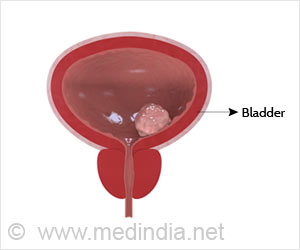Urine RNAs could serve as diagnostic markers for bladder cancer and new study suggests specific novel markers.

‘Systematic deep transcriptome analysis of representative pools of urine RNA collected from healthy donors helps in detecting bladder cancer.’
Read More..




This analysis revealed RNA marker candidates reflecting coding sequences, non-coding sequences, and circular RNAs.Read More..
Next, they designed and validated PCR amplicons for a set of novel marker candidates and tested them in human bladder cancer cell lines.
This Oncotarget work strongly suggests exploiting urine RNAs as diagnostic markers of bladder cancer and it suggests specific novel markers.
This Oncotarget work strongly suggests exploiting urine RNAs as diagnostic markers of bladder cancer and it suggests specific novel markers.
Dr. Georg Sczakiel from The Universität zu Lübeck and UKSH, said "Human bladder cancer (BCa) is one of the most common cancer types in humans."
Advertisement
In case of BCa, urine is thought to be the most promising source for RNA-based tumor markers as direct physical contact between tumor cells and urine seems to be given.
Advertisement
Cell-free RNA contained in urine samples can be protected against degradation, i.e., stabilization of RNA markers is possible such that shipping of samples and storage is possible.
This consists of SOP-based acquisition of urine, stabilization of urine RNA, delivery and storage of samples, RNA preparation, and deep transcriptome analyses.
The Sczakiel Research Team concluded in their Oncotarget Research Output that while all of these hits focus on conventional linear transcripts the authors also noted experimental evidence supporting the existence of circular RNAs that seem to be able to monitor differences between the healthy state and the cancer state.
This is reflected by a number of recent studies describing a link between circular RNA and cancer.
However, such evidence derived from in silico analyses does not necessarily prove that such circRNAs exist in reality.
A set of experimental evidence is necessary to sufficiently strongly verify their existence.
However, such assays go beyond the scope of this study although this is one promising way to proceed in order to identify new and potent RNA markers.
Source-Eurekalert












